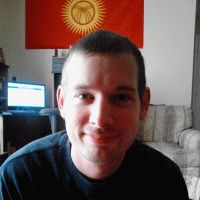Berichten: 15
Taal: English
Velkro (Profiel tonen) 1 april 2016 22:12:27
lapercaumore (Profiel tonen) 1 april 2016 23:42:37
Vestitor (Profiel tonen) 2 april 2016 00:35:32
Also that despite the numbers of second-language English speakers there is still 70-80% of people NOT speaking English.
It doesn't show the source (was it Education Survey?), but it's a reiteration of the reality of 'world English' as opposed to the propaganda about it being the world language.
Luib (Profiel tonen) 2 april 2016 09:30:40
sudanglo (Profiel tonen) 2 april 2016 09:48:36
There may be a very large numbers of speakers of Chinese (yes I know that in spoken form this is not one language) but how often would you find yourself in a situation where you need to communicate with a Chinese speaker.
What the statistics in the article show is that there are large numbers of people who have English as a second language (the article suggests that these outnumber the native speakers by about three to one) and we can surmise that those ESL speakers are well distributed across the world.
Suppose that half the world's population was in one country speaking one language and that the inhabitants rarely travelled and also that it was very unpopular as a tourist destination. The language of that country wouldn't be very useful as lingua franca.
Velkro (Profiel tonen) 2 april 2016 10:57:50
Luib:Why don't you learn any Aborigines language in Australia? Or is this just my Swiss way of thinking? (in Switzerland everyone learns at least one other language spoken in the country; Ticinesi even have three compulsory languages: German, French and English.)Aboriginal languages (there are very many) are taught in various places in the country including some schools. But whether it is taught depends on how widely the language is spoken, whether it it has been recorded as a written language, and whether there are enough willing people to teach it. As an example, Yolngu Matha has a comparatively large speaker base. It is spoken in Arnhem Land in northern Australia and it can be studied at the university in Darwin. But aside from the other factors I mentioned, there are simply too many aboriginal languages to make it a viable second-language option for the whole country.
Vestitor (Profiel tonen) 2 april 2016 16:21:08
Luib:Why don't you learn any Aborigines language in Australia? Or is this just my Swiss way of thinking? (in Switzerland everyone learns at least one other language spoken in the country; Ticinesi even have three compulsory languages: German, French and English.)Well, that's a bit misleading. Like the situation in Belgium it gives the impression that everyone is tri-lingual or at least bilingual, but even this is not true. Once I was out of the areas where German is spoken in Switzerland, finding a German speaker was much harder. Of course finding people who spoke English was far less difficult. And that's not even one of the 'official' languages.
robbkvasnak (Profiel tonen) 2 april 2016 18:17:27
But in Switzerland if you speak to someone in one of the other national languages (except for Romansch) they are at least polite. The Belgians are down right NASTY We wasted five days in Brussels trying to enjoy ourselves despite the Belgians. If you address someone in French then they are nasty because they prefer Dutch. If you try Dutch, they smile at your attempts. They claim that they don't speak German at all (their third national language). And if you speak American English (like we do) THEY CORRECT YOU!!!! No way! Never going back to Belgium. Let them fight in their itsy-bitsy country
One guy on the train heard us speaking Esperanto and when he found out what we were speaking he was even more impolite. So we just spoke to him in Portugues and he shut up. Yuck! Belgium is for Mennicken Piss
Vestitor (Profiel tonen) 2 april 2016 20:31:58
robbkvasnak:The Belgians are down right NASTY We wasted five days in Brussels trying to enjoy ourselves despite the Belgians.Yes, you can always count on the national population to ruin everything by being present in their own country...
Brussels is a 'French' speaking enclave in the mainly Dutch-speaking North (which makes me wonder why you think they preferred Dutch). Running into the language friction is unavoidable. I've never had a problem in Belgium, but I suppose we all have different experiences.
Alkanadi (Profiel tonen) 3 april 2016 07:27:25
Vestitor:This made me laugh, but I think the point is that visitors want to be treated like a guest rather than garbage.robbkvasnak:The Belgians are down right NASTY We wasted five days in Brussels trying to enjoy ourselves despite the Belgians.Yes, you can always count on the national population to ruin everything by being present in their own country...
I think lots of cultures in the world are not very welcoming towards other languages because they feel like their culture is being crushed. They feel victimized.
My friend told me that when she went to France, she had the same experience. If you try to speak English, you will receive negative social sanctions.
Maybe, next time, try Germany.






